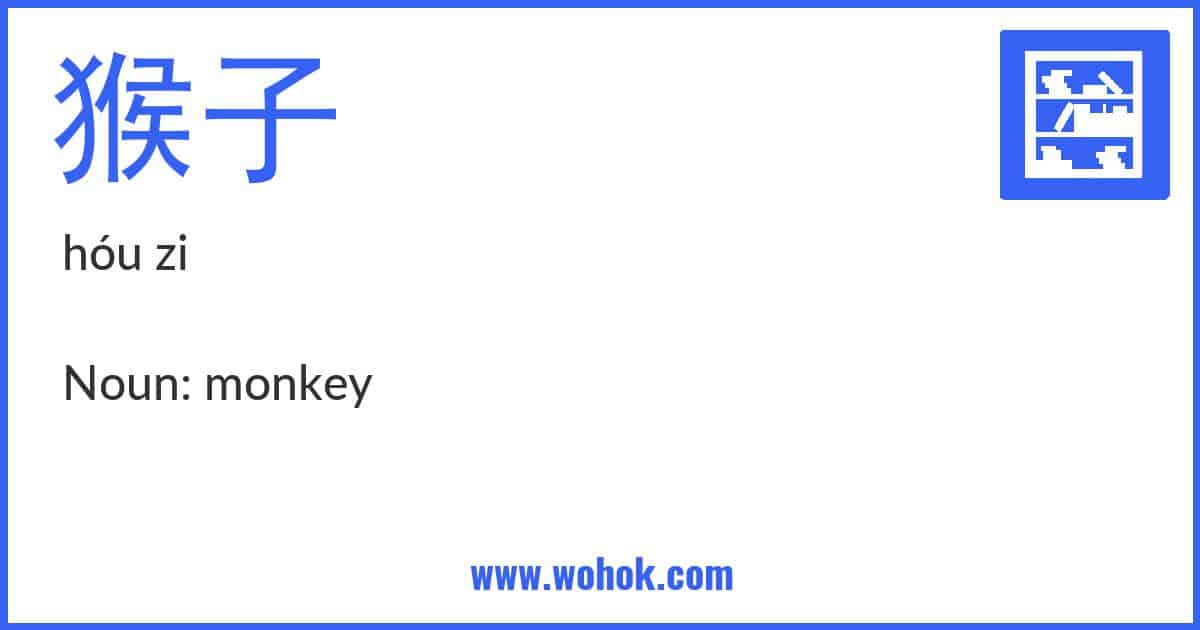The Chinese word 猴子 means “monkey” in English. It is a common word used to refer to any of the various species of primates that are found in China and other parts of the world. The word can be used in a variety of contexts, such as in discussions about wildlife, in descriptions of zoos or wildlife parks, or even in casual conversations about pets or animals in general. In Chinese culture, the monkey is often associated with intelligence, mischief, and playfulness, and the word 猴子 is sometimes used in idiomatic expressions to describe these traits.
Translation
Noun: monkey
Pronunciation
Example Sentences
| Chinese | Pinyin | Engish |
|---|---|---|
| 猴子喜欢吃香蕉 | hóu zǐ xǐ huān chī xiāng jiāo | Monkeys like to eat bananas |
| 他的房间里有一只猴子 | tā de fáng jiān lǐ yǒu yī zhī hóu zǐ | There is a monkey in his room |
| 猴子的尾巴很长 | hóu zǐ de wěi bā hěn cháng | Monkeys have long tails |
| 猴子在树上玩耍 | hóu zǐ zài shù shàng wán shuǎ | Monkeys play on trees |
| 猴子是聪明的动物 | hóu zǐ shì cōng míng de dòng wù | Monkeys are intelligent animals |
| 猴子喜欢用手拿东西 | hóu zǐ xǐ huān yòng shǒu ná dōng xī | Monkeys like to use their hands to hold things |
| 这个公园里有很多猴子 | zhè gè gōng yuán lǐ yǒu hěn duō hóu zǐ | There are many monkeys in this park |
| 猴子喜欢跳跃和攀爬 | hóu zǐ xǐ huān tiào yuè hé pān pá | Monkeys like to jump and climb |
HSK
猴子 is part of HSK Level 4 in HSK 2.0. In the newer HSK 3.0 it is not listed as one of the vocabularies to learn anymore.
Learning Card


